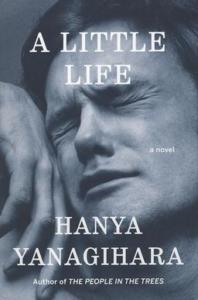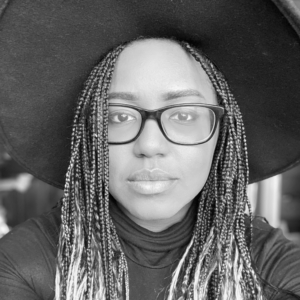A Little “Triggering” Life
 Earlier this year, I read A Little Life by Hanya Yanagihara. If you haven’t read this book yet, be advised, there are spoilers ahead. It took me two whole weeks to read this novel, nearly 800 pages of torture for the reader. Yanagihara’s story follows Jude, a character who, according to an interview, is someone who simply “never gets better.”
Earlier this year, I read A Little Life by Hanya Yanagihara. If you haven’t read this book yet, be advised, there are spoilers ahead. It took me two whole weeks to read this novel, nearly 800 pages of torture for the reader. Yanagihara’s story follows Jude, a character who, according to an interview, is someone who simply “never gets better.”
Jude is beloved by his friends as he is alone. He also has an unspoken past he only reveals in time to the ones closest to him, including his new, chosen family. In this novel, he’s subjected to physical, sexual, and emotional abuse, abandonment, betrayal, brutality, self-affliction, and self-harm. He faces one tragedy after another. Jude struggles with everything from losing his parents to a car crash, being humiliated by a priest, and cutting himself with razor blades. In between, he is beaten within inches of his life… and that’s only half of the book.
I have a rule: If I pick a book to read, I finish it, no matter how horrifying. So, the question I had for Yanagihara on late nights while I poured through pages and pages of agony was “why?” I soon realized why? was the wrong question.
As the owner of a medium sized bookstore in Detroit, I read a lot of words. They make me uncomfortable, grateful, sad, happy, angry, dejected, abandoned, and some of them trigger me. I like to say I don’t need trigger warnings, even though I realize they serve a particular purpose. They tell us to prepare ourselves for what is ahead, but they don’t teach us how to deal with the big emotions that may also come with the warnings.
Many of the customers in my bookstore ask me what kind of content is in a particular book. I get questions about violence, sex, abuse, or anything that is considered “triggering.” I’m used to these questions and try to answer to the best of my ability, but I still get a lot of readers who shy away from a book because of its content. A Little Life reminded me that we don’t get that option in real life. Life doesn’t come with trigger warnings.
***
I have something called C-PTSD or Complex Post Traumatic Stress Disorder, along with four other mental conditions that put me in a vulnerable headspace. These conditions can cause a world of fear. For me, trigger warnings are not only commonplace in my life, they serve as a safety net when I’m most vulnerable. Last year during the holiday season, I spiraled. There were no signs, no warnings, nothing to protect me, so I ended up in the hospital. When I met my therapist, she explained to me that big emotions cause us to end up in the “pit.” When something difficult comes my way, I don’t know how to deal with it, and I let my emotions drag me down and keep me there. What I learned shortly after the hospital was how to react to an adverse experience without ending up in the “pit.” These tools include separating emotions from facts by asking a series of questions which reassures the brain we are okay, and by utilizing mindfulness. Being aware of our surroundings and our mental space helps determine what is actually a threat and what isn’t.
When I read A Little Life, there weren’t any content warnings. I read it without considering how the content might stir my vulnerabilities, but experiencing content beyond my comfort level served a purpose. It allowed me to ask myself why what I read made me uncomfortable. In a way, the book became training for difficult stories I encountered later. Instead of putting the book down, I rooted for Jude and his ability to create his own life. I wanted to see him get through to happiness he created for himself, which was worth reading.
In the end, I enjoyed the book for many reasons. I asked myself what Yanagihara was doing in the book instead of why, which separated my emotions from the book. A Little Life also reminded me why I became a reader in the first place and why I keep A Little Life on the shelves of my bookstore for other readers to consider. Reading difficult content allows more empathy than we may have on our own. Experiencing a story that is so unlike my own has changed the way that I read Jude’s turmoils; they allowed me to recognize the ugliness of humanness but also the brilliance of life. Though we can’t read everything, making room for books and stories that are difficult for us content-wise can make us better human beings.
Jazmine Cooper is an MFA candidate studying Fiction at Antioch University Los Angeles. She is a co-owner and General Manager of 27th Letter Books in Detroit, Michigan. She lives in Detroit, Michigan with her fiance and cat.





